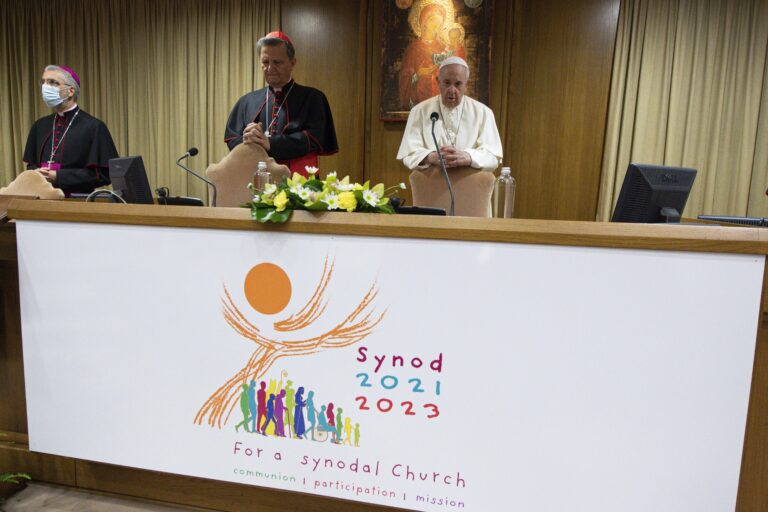The Catholic Church in Germany was increasingly distancing itself from the Universal Church, Katharina Westerhorstmann, Hanna-Barbara Gerl-Falkovitz, Dorothea Schmidt and Marianne Schlosser wrote in the newspaper Die Welt. The four women have taken part in the project as representatives of the German Bishops’ Conference.
The stated aim of the Synodal Path was to come to terms with sexual abuse, they added. “In the course of this, however, central Catholic teachings and convictions were also called into doubt. We can no longer go along with this path, on which, in our estimation, the Church in Germany is distancing itself more and more from the Universal Church,” they wrote.
The process had repeatedly ignored “interventions and clarifications from Vatican authorities and the Pope”, they wrote, Further participation in the Synodal Path would mean supporting a course that would obviously drive the Church in Germany into isolation within the Universal Church. “We cannot and do not want to share responsibility for that.”
The resolutions of the past three years had not only called into question essential foundations of Catholic theology, the doctrine of man and Church practice, but in some cases completely redefined them. “In doing so, it was not clarified what can constitute a valid theological argument,” the four delegates wrote. Serious objections in favour of current church teaching had barely been taken into account.
A number of years ago, the auxiliary bishop of Cologne, Dominikus Schwaderlapp, had cited similar reasons when he left the Synodal Path forum on sexual morality. He said that the line pursued by the majority within the forum was aimed at changing Church doctrine.
The Catholic Church in Germany launched the Synodal Path to regain trust lost in the course of the abuse scandal. Its main themes are sexual morality, the priestly way of life, the exercise of power and the role of women in the Church.
A few days ago, Vatican Cardinal Marc Ouellet had warned that the German reform debate could lead to a schism in the Church. “God save us from a schism,” said the outgoing Prefect of the Dicastery for Bishops. Reforms must be carried out “in continuity with the faith of the Church, with the word of God, with the tradition of the Church”.
By contrast, the president of the German Bishops’ Conference, Bishop Georg Baetzing, had reiterated his support for the idea of adopting different regional solutions. “I would be happy if it were allowed at the level of the Catholic Universal Church that things are possible in some local churches that are not or not yet relevant in other parts,” he said.
The four delegates who have resigned said they would not participate in the fifth and final Synodal Assembly in early March. “We hereby resign our mandate,” they wrote.



